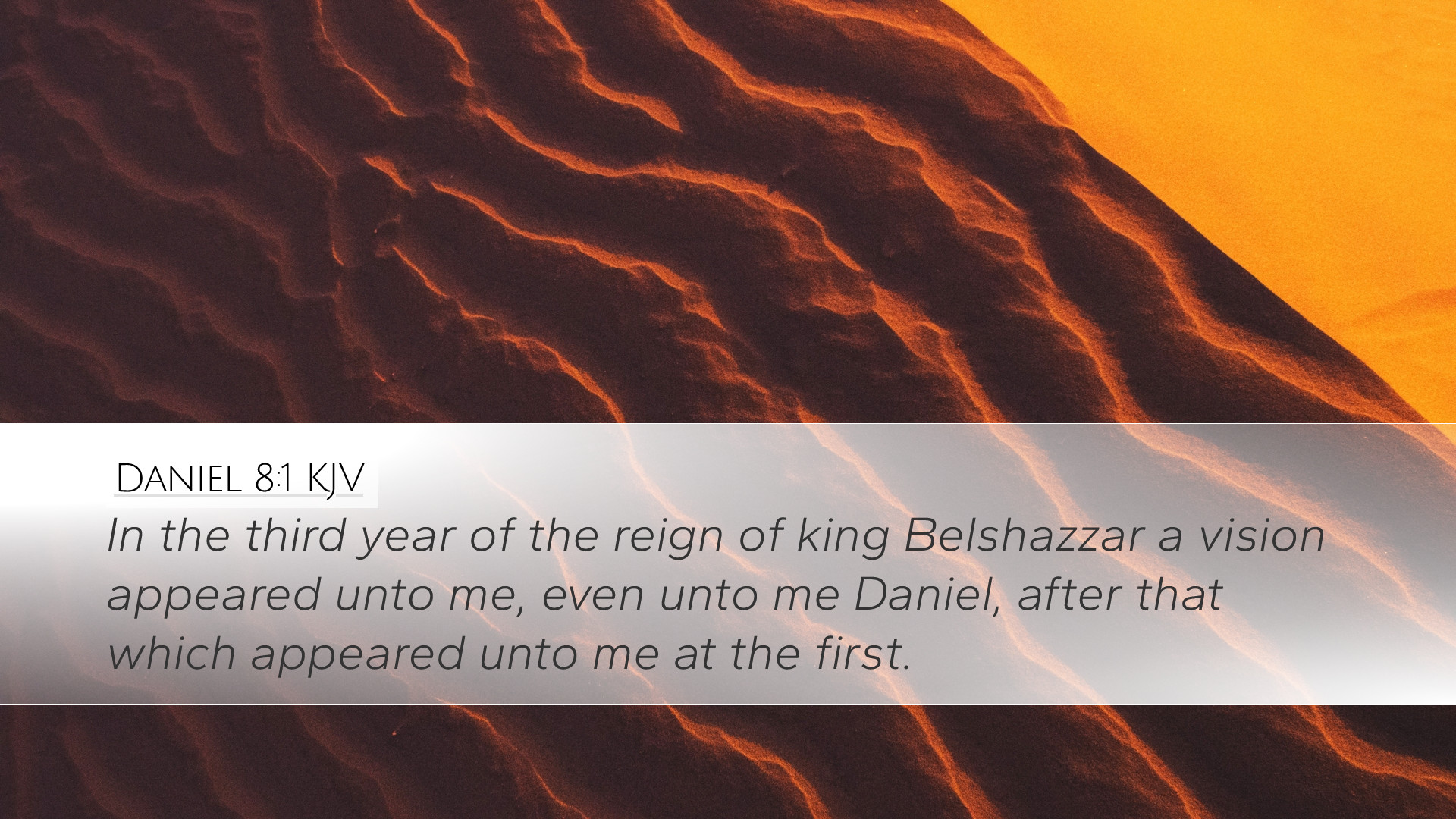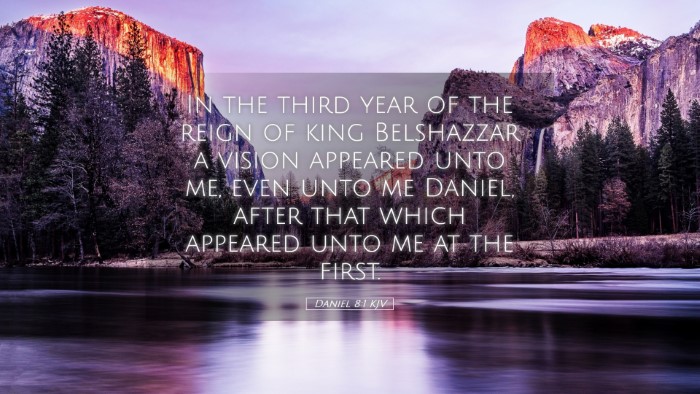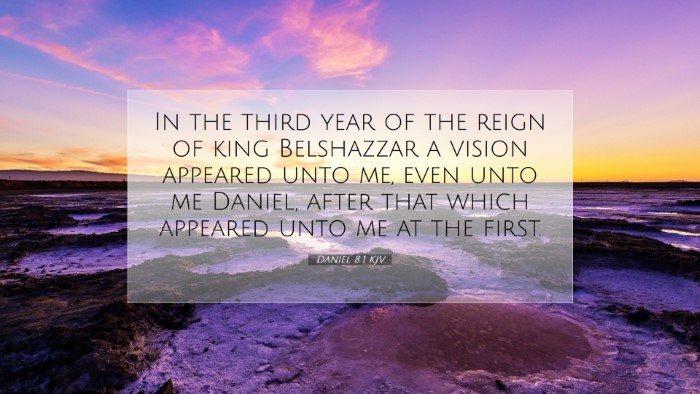Commentary on Daniel 8:1
Verse Overview:
Daniel 8:1 states: "In the third year of the reign of King Belshazzar, a vision appeared unto me, even unto me Daniel, after that which appeared unto me at the first." This verse sets the stage for the second major vision that Daniel experiences and introduces significant themes of prophecy, revelatory history, and the divine interaction with human affairs.
Contextual Background
The book of Daniel is a blend of historical accounts and apocalyptic visions. By the time of this vision, Daniel is situated in a critical moment of Jewish history as they remain in Babylonian captivity, longing for restoration. This period follows the initial vision of the four beasts described in Daniel 7. The mention of "the third year of the reign of King Belshazzar" indicates that Daniel's experiences are rooted in a specific historical timeline.
Insights from Public Domain Commentaries
Matthew Henry's Commentary
Matthew Henry emphasizes the significance of timing in Daniel's visions. He explains that the specific mention of Belshazzar's reign relates to the prophetic unfolding of events. Daniel's visions do not merely serve as future predictions but rather as a means to understand God's sovereign plan over nations. Henry notes that:
- Daniel, as a faithful servant of God, receives divine revelations not only for his own benefit but for the instruction of the people of God.
- This vision reaffirms God’s presence and control even amid political unrest and turmoil.
- The fact that Daniel refers to himself reinforces his authority and personal stake in delivering the prophetic word.
Henry concludes by pointing out that every revelation must be interpreted within the context of the ongoing historical narrative, drawing attention to God’s ultimate sovereignty.
Albert Barnes' Notes on the Bible
Albert Barnes provides a detailed exposition on the prophetic significance of Daniel's vision. He posits that the "vision that appeared" marks a transition from King Nebuchadnezzar’s dreams to more intricate prophetic imagery indicative of later historical events. Some key points from Barnes include:
- His focus on one specific year signifies the importance of divine revelation at pivotal moments in history.
- The 'vision' refers to symbolic representations which reveal forthcoming events, particularly concerning the Medo-Persian empire and the Hellenistic period.
- Barnes interprets this as an encouragement to the Jewish exiles, emphasizing that despite their present situation, there is divine providence guiding history.
The emphasis on revelation encourages a study of prophetic scriptures and their implications for understanding God’s interactions with His chosen people.
Adam Clarke's Commentary
Adam Clarke's insights delve into the implications of the vision for both Daniel and the readers of the text. Clarke highlights that:
- The context of the "third year" aligns with significant events in the Babylonian empire, emphasizing the unique nature of the revelation.
- Clarke discusses the human element of prophecy, noting Daniel's position of authority and responsibility as a prophet.
- The significance of calling attention to his name emphasizes a personal and communal responsibility to understand the meanings of these visions.
Clarke's exposition suggests that God's revelations are not without purpose and must be consequential for the believer's faith and practice, as they build hope and expectation.
Theological Implications
Drawing insights from these commentaries, we can observe several theological implications:
- God's Sovereignty: All three commentators agree that Daniel's visions illustrate God’s overarching control over history, reinforcing the understanding that God governs worldly affairs.
- Revelation as Purposeful: The visions serve not merely to predict the future but to inform God's people about their circumstances and encourage faithfulness amidst trials.
- Human Responsibility: Daniel's role highlights the importance of prophetic messengers in conveying God's truths to align the community with divine will.
Conclusion
For pastors, students, theologians, and Bible scholars, Daniel 8:1 represents a critical entry point into understanding both historical context and prophetic promise. It challenges the reader to reflect on the nature of God’s communication through visions and the active pursuit of understanding His will amidst challenging circumstances. Such dialogue between the biblical text and the life of the believer brings depth and conviction as they navigate faithfulness in a complex world.


